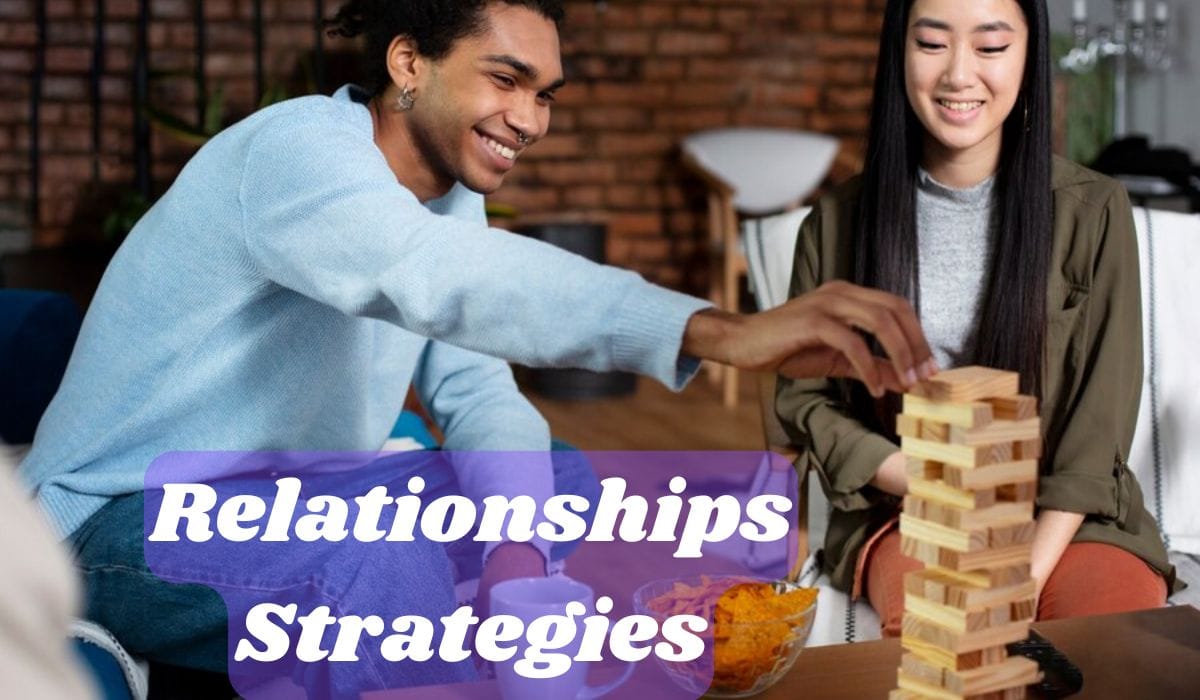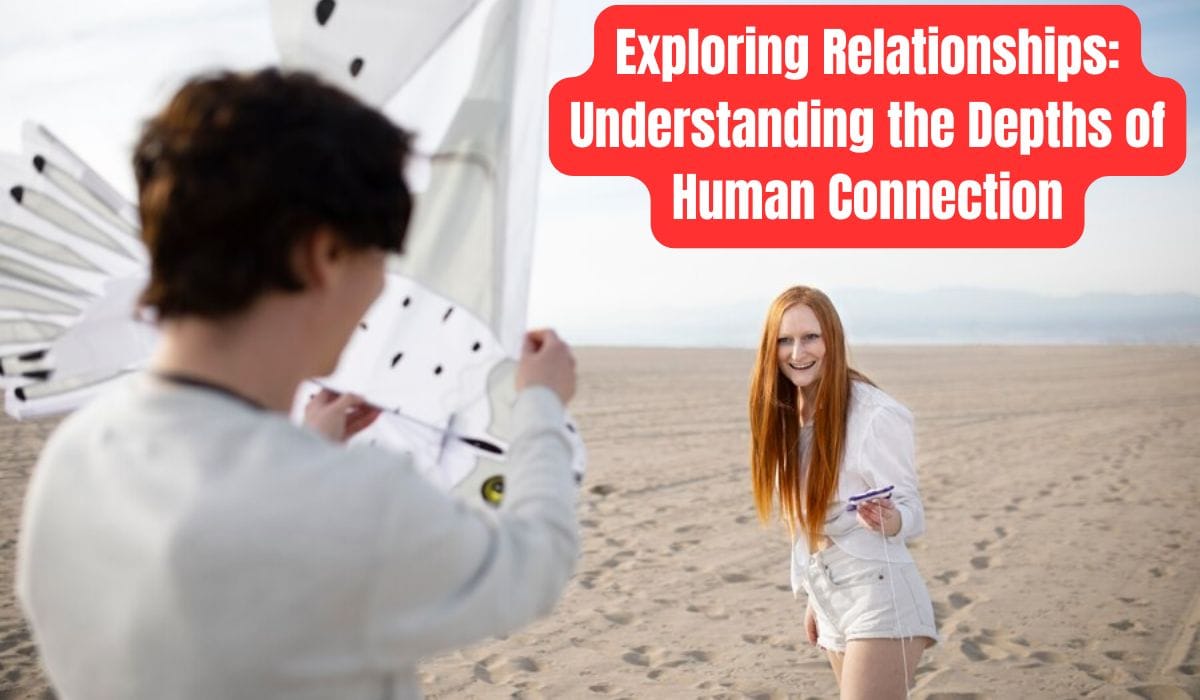Exploring Relationships: Understanding the Depths of Human Connection. Human relationships are intricate webs of emotions, behaviors, and cultural contexts that define how individuals connect. From familial bonds to romantic partnerships and friendships, relationships shape our identities, influence our actions, and contribute to our sense of belonging. Understanding these connections through the lens of anthropology offers profound insights into the depths of human interaction and the forces that bind us together.
The Anthropological Lens on Relationships
Anthropology, the study of humans and their societies, provides a unique framework for analyzing relationships. Anthropology reveals how people form and maintain connections by examining cultural practices, social norms, and historical contexts. Relationships are not just personal experiences; they are deeply embedded in a community’s social and cultural fabric.
For instance, kinship systems in traditional societies illustrate how family structures influence relationships. In some cultures, extended families play a central role, fostering a sense of collective responsibility and interdependence. In others, nuclear families dominate, emphasizing individualism and autonomy. Anthropologists study these variations to uncover the underlying values and beliefs that shape human connections.
The Role of Communication
Communication is the cornerstone of any relationship. Through language, gestures, and even silence, people convey emotions, intentions, and expectations. Anthropologists have explored how communication patterns differ across cultures and how these differences impact relationships. For example, in high-context cultures, where much is implied and understood without explicit expression, relationships rely heavily on shared history and mutual understanding. In contrast, low-context cultures prioritize direct and clear communication.
Nonverbal cues, such as eye contact, body language, and physical proximity, also play a significant role in shaping relationships. Anthropological studies reveal that these cues often carry cultural meanings, influencing how individuals interpret and respond to each other’s actions.
Love and Romance Across Cultures
Romantic relationships are universal yet culturally specific. Anthropologists have studied the concept of love across societies to understand its various expressions and meanings. In some cultures, love is seen as a prerequisite for marriage, while in others, it develops after a union is formed. Arranged marriages, common in many parts of the world, challenge the Western ideal of love as the foundation of relationships. By examining these practices, anthropology highlights the diversity of romantic experiences and the cultural factors that shape them.
Friendship and Social Bonds
Friendship is another vital aspect of human connection. Anthropologists have explored how friendships are formed, maintained, and valued in different societies. In some cultures, friendships are deeply intertwined with social obligations and reciprocal exchanges, while in others, they are based on shared interests and emotional support. Understanding these dynamics sheds light on the universal need for companionship and the ways it is fulfilled across cultural contexts.
The Impact of Modernity
In today’s globalized world, relationships are evolving rapidly. Technology has transformed how people communicate, build connections, and sustain relationships. Social media, dating apps, and virtual interactions have created new avenues for connection, while also posing challenges such as misunderstandings and superficiality. Anthropologists study these trends to understand how modernity influences traditional relationship dynamics and what it means for the future of human connection.
Exploring Relationships: Understanding the Depths of Human Connection
Types of Relationships:
Relationships can be categorized in various ways based on the type of connection and the context in which they exist.
Here are the common types of relationships:
1. Family Relationships:
- Parent-Child Relationship: The bond between parents and their children.
- Sibling Relationship: Connections between brothers and sisters.
- Extended Family Relationships: Bonds with grandparents, aunts, uncles, cousins, etc.
2. Romantic Relationships
- Dating Relationship: A connection based on romantic interest and exploration.
- Committed Relationship: A partnership involving exclusivity and long-term commitment.
- Marital Relationship: A legally or socially recognized union (e.g., marriage).
- Casual Relationship: A non-committed romantic or physical connection.
3. Friendship
- Close Friends: Deep, trust-based relationships with mutual affection.
- Acquaintances: Casual, less intimate friendships or connections.
- Work Friends: Relationships developed in a professional environment.
4. Professional Relationships
- Colleague Relationship: Professional connections between coworkers.
- Mentor-Mentee Relationship: Guidance and support provided by an experienced individual to a learner.
- Client-Customer Relationship: The bond between a service provider and their client.
5. Social Relationships
- Community Relationship: Connections within a shared community or group.
- Neighborly Relationship: Bonds with people living nearby.
- Online Relationships: Connections developed through digital platforms.
6. Transactional Relationships
- Based on the exchange of goods, services, or mutual benefits, such as buyer-seller dynamics.
7. Teacher-Student Relationships
- Relationships centered around learning and education.
8. Platonic Relationships
- Non-romantic relationships are built on emotional closeness and mutual respect.
9. Adversarial Relationships
- Conflict-driven connections, such as rivalries or disputes.
10. Self-Relationship
- The relationship one has with themselves, including self-love, self-awareness, and self-esteem.
Each type of relationship has its dynamics, challenges, and rewards, and they contribute to different aspects of personal and social well-being.
Relationships Strategies

Establishing and maintaining strong, healthy relationships with people requires intentional strategies that foster trust, respect, and mutual understanding.
Here are strategic categories for building the best relationships:
1. Communication Strategies
- Active Listening: Truly hear and understand the other person without interrupting or judging.
- Clear Expression: Articulate your thoughts and feelings honestly and concisely.
- Nonverbal Communication: Use appropriate body language, eye contact, and gestures to reinforce your message.
- Regular Check-ins: Stay in touch and show consistent interest in their lives.
2. Empathy and Understanding
- Put Yourself in Their Shoes: Try to see situations from their perspective.
- Validate Their Feelings: Acknowledge their emotions without dismissing or minimizing them.
- Be Patient: Understand that everyone has unique challenges and timelines.
3. Trust and Reliability
- Be Dependable: Keep your promises and be consistent in your actions.
- Build Transparency: Be open and honest about your intentions.
- Give the Benefit of the Doubt: Avoid jumping to negative conclusions without evidence.
4. Respect and Boundaries
- Honor Boundaries: Respect their personal space, time, and preferences.
- Value Differences: Appreciate diversity in opinions, beliefs, and backgrounds.
- Avoid Judgment: Embrace people as they are without trying to change them.
5. Generosity and Support
- Be Kind and Generous: Offer help or support without expecting anything in return.
- Celebrate Successes: Acknowledge and celebrate their achievements, big or small.
- Be There in Tough Times: Provide emotional support during challenges.
6. Conflict Resolution
- Stay Calm: Approach disagreements with a cool head and a willingness to resolve.
- Focus on Solutions: Aim to address issues, not assign blame.
- Apologize When Necessary: Take responsibility for your mistakes and make amends.
7. Time and Effort
- Invest Quality Time: Make time to connect meaningfully, even in small ways.
- Show Consistency: Relationships grow stronger with regular effort and presence.
- Be Present: Engage fully in conversations and activities without distractions.
8. Personal Growth and Self-Awareness
- Know Yourself: Understand your own needs, strengths, and weaknesses.
- Be Open to Feedback: Accept constructive criticism and use it to grow.
- Maintain Balance: Manage your well-being to avoid overextending yourself.
9. Positive Attitude
- Be Encouraging: Inspire optimism and confidence in others.
- Practice Gratitude: Show appreciation for the people in your life.
- Smile Often: A simple smile can create warmth and connection.
10. Shared Interests and Experiences
- Find Common Ground: Identify shared hobbies or passions to bond over.
- Create New Memories: Engage in activities together that strengthen the relationship.
- Be Inclusive: Involve others in experiences and decisions that matter to them.
By implementing these strategies, you can build and nurture strong, meaningful relationships that stand the test of time.
Relationship Tips
- Communicate Openly and Honestly: Share your thoughts and feelings regularly.
- Practice Active Listening: Pay full attention, acknowledge their perspective, and avoid interrupting.
- Show Appreciation: Express gratitude for the little things they do.
- Respect Boundaries: Honor their personal space, time, and preferences.
- Be Reliable: Follow through on your promises and commitments.
- Celebrate Achievements: Acknowledge and share joy in their successes.
- Spend Quality Time Together: Prioritize meaningful interactions and shared activities.
- Be Supportive During Tough Times: Offer help and understanding when challenges arise.
- Handle Conflicts Calmly: Address issues constructively and focus on solutions, not blame.
- Practice Empathy: Try to understand their feelings and experiences.
- Maintain Trust: Be transparent, honest, and dependable.
- Apologize When Necessary: Own your mistakes and make amends sincerely.
- Keep the Spark Alive: Surprise them with thoughtful gestures or activities.
- Value Their Opinions: Show that their input and ideas matter to you.
- Focus on Growth: Encourage personal and mutual development.
- Laugh Together: Share humor to lighten the mood and strengthen your bond.
- Forgive and Let Go: Don’t hold grudges; work toward resolving issues.
- Be Present: Give your undivided attention during conversations and time together.
- Adapt and Evolve: Be flexible as the relationship grows and changes over time.
These tips can help cultivate stronger, healthier, and more fulfilling relationships.
Conclusion
Exploring relationships through an anthropological perspective reveals the profound complexity of human connection. Relationships are not merely personal or emotional experiences; cultural, social, and historical contexts shape them. By understanding these influences, we can appreciate the richness of human interaction and the ways it defines who we are. Ultimately, the study of relationships is a journey into the essence of humanity, offering insights into what it means to connect, love, and belong.





